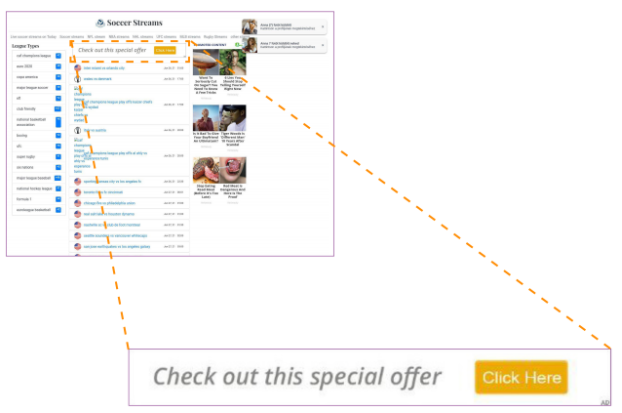Websites featuring pirated movies and shows make about $1.3 billion from real and malicious advertising, according to a study published by Digital Citizens Alliance and White Bullet, an anti-piracy firm.
According to the study, about one-third of these piracy websites and apps contained “malvertising” – including fake ads, deceptive images, and fraudulent promotions that trigger the download of malware onto the device with a single click.
According to a new Digital Citizens Alliance report, #piracy sites make more than $1 .3 billion from malicious and real ads! Learn more: https://t.co/rkOt8LZpMm @4SaferInternet
— Copyright Alliance (@Unite4Copyright) August 12, 2021
What’s more surprising is that major brands account for 4% of ads on the pirated websites and 24% on the pirated apps. Ads displayed include major companies with Amazon, Google, and Facebook having a large representation on these websites and apps. The rest is from small companies, fraud, malware, and adult content.
The biggest chunk of advertisement is in the form of “sponsored content” that often servers as clickbait with a link that looks like it will lead to an interesting video or a news article.
The advertisements from major brands like Amazon are especially problematic as they make the entire website appear legitimate and safe. According to the study, with these ads, users are more likely to click on the ads that appear elsewhere on the website.
Digital Citizen’s Alliance Study on Piracy
The study conducted by an online safety non-profit organization, Digital Citizen’s Alliance, and an anti-piracy firm White Bullet Solutions Ltd, identified more than 84,000 piracy entertainment sites online.
According to the study, the types of malware and ads that can be found on these sites include:
- Adware that automatically starts displaying ads when a user goes online.
- Tools that can invoke browser hijacking.
- Trojans and keyword loggers to steal sensitive data and credentials.
The report also stated:
“The purveyor of the malware not only pays the publisher for placing the ad, but may also provide additional commission for every resulting malware infection or fraudulent installation. In this way a complex symbiosis develops between piracy and malware that ultimately harms both consumers and rights owners.”
Between June 2021 and May 2021, the study tracked almost 664 billion ads across 6,000 major piracy websites and around 900 apps. After cross-referencing this number with an ad revenue matrix, the study determined that these websites generated over $1 billion in revenue, and the apps generating more than $250 billion.
The report also highlighted that market for apps is growing faster than websites. On a website used to stream US sports events, clicking on ads displayed on the site automatically installs malware on the device and floods the screen with redirects and pop-ups.

(Image: The Record)
Ads on piracy websites and apps are inadvertent. Peter Szyszko, CEO and founder of White Bullet, said:
“Failure to choose tools that assess piracy risk in real-time means advertisers fund criminals – and it’s a billion-dollar problem. At best, this is negligent. At worst, this is deliberate funding of IP crime.”
White Bullet further ads that major brands like Apple, Amazon, Airbnb, Coca-Cola, NBA, PayPal, and thousands of other brands are unknowingly supporting piracy with ads. Advertising on such websites and apps enables these domains to thrive. Peter Szyszko also said:
“If they don’t filter out the dangerous and criminal publishers then they are putting their own brands at risk of reputational damage and are funding criminals.”
Threat to user’s online security
Malvertising is quite harmless for users as they are targeted with ads laced with malicious links and codes that compromise their online privacy and security. Once the malware is installed on the system, it can be used to steal their personal information, including financial details. At extreme levels, it can also use the device for mining cryptocurrency and even make the user’s device part of a botnet to carry out denial of service attacks and more.
As these malicious attacks keep rising, to ensure maximum security on their end, user’s should make sure to use encryption tools like a virtual private network (VPN) and anti-malware software to keep their devices secure while they browse online.
There are plenty of VPNs with built-in anti-virus software that you can use to double your security. If you are concerned about ads being displayed on various websites and platforms, you can also go for a VPN with Adblocker to block various kinds of ads populating your web pages like banners, pop-ups, redirects, and more.
